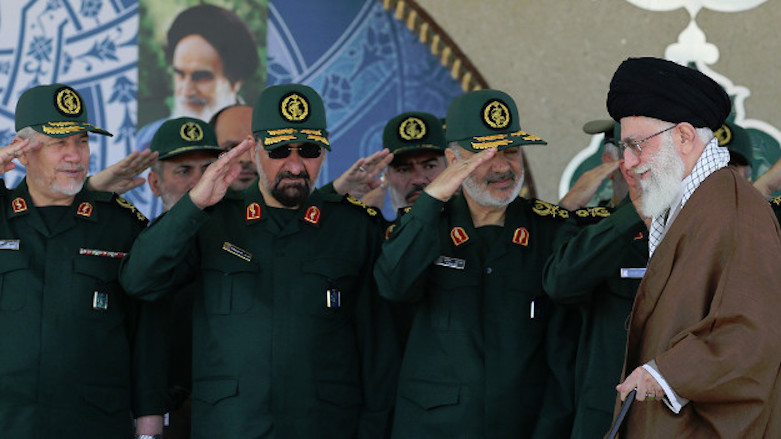Iranian Kurdish party warns of extensive plans by Iran to attack Kurds

ERBIL (Kurdistan 24) – A senior Iranian Kurdish official warned that Tehran is planning extensive attacks on Iranian Kurdish parties amid economic turmoil, electricity cuts, and protests inside Iran.
Loghman H. Ahmedi, a senior member of the Democratic Party of Iranian Kurdistan’s (PDKI) leadership, told Kurdistan 24 on Monday that Iran is worried about domestic problems posing an existential threat to the “regime,” and is looking to divert attention from its internal issues by attacking Kurds.
“The terrible economic and political situation and Iran’s wars in the region have created a situation of real dissent inside the country that can lead to real change inside Iran,” he said. “Hence, the regime is attempting to divert attention from these domestic crises by blaming external actors.”
Ahmedi revealed that the PDKI has “detailed information” that suggests Iran is planning “extensive military and terrorist operations” against the party.
These threats and the Islamic Revolutionary Guard Corps’ (IRGC) movements have to be taken seriously, he added.
Iran has conducted cross-border operations deep into the Kurdistan Region’s territory in the past. In 1996, the IRGC attacked the PDKI’s base outside Koya Sanjaq.
Since 1991, Iran has also assassinated several hundred of the party’s members inside the Kurdistan Region, Ahmedi told Kurdistan 24.
“High-ranking officials from Iran’s military and government have during the past couple of weeks made very public threats against our party,” he added.
The Iranian Deputy Interior Minister for Security Affairs, Hossein Zolfaqari, warned on July 23 that Tehran would take matters into its own hands if the neighboring countries did not prevent insecurity.
After his threat, Iranian cross-border shelling killed two PDKI fighters and injured civilians.
The threats come after increased activity by Iranian Kurdish armed groups inside Iran and a new, more confrontational policy by the Trump administration toward Tehran’s presence in the region.
“We take it seriously,” Abdullah Mohtadi, head of the Iranian Kurdish Komala party, recently told Kurdistan 24 regarding the threats.
Meanwhile, Kako Alyar, a senior member of Komala, argued Iran is repressing Kurds inside the country because “Kurdish political parties are the most organized among the Iranian opposition.”
The Kurdish parties have extensive “support among Kurds and in any change from status quo they can mobilize millions of people,” he added.
“But clearly, Kurds do not get scared, on the contrary, more motivated to fight even more to achieve their legitimate rights.”
Dr. Bilal Wahab, an analyst at the Washington Institute, said “bombs and assassinations remain a key tool for Iran” in attacks on the country’s Kurdish parties.
The analyst noted that the Kurdish opposition “is an easy target” for Iran, and said reports that the US would use Iranian Kurdish groups against Tehran is similar to Washington’s support of the YPG in Syria.
“Of course, such prospects present Iranian Kurdish groups with an opportunity to be relevant [akin to YPG perhaps],” he said.
“But an attack on Iranian Kurdish targets would be easy and convenient for Iran,” he added. “There is little recourse for Iranian Kurds against such an Iranian attack on their bases in” the Kurdistan Region.
According to Wahab, the KRG “is more cognizant and careful about not crossing Iran,” particularly after the independence referendum and efforts by Kurdistan parties and leaders to mend ties with Baghdad.
The KRG has called on Iran to stop indiscriminate shelling of the border and asked Iranian Kurdish groups to stop using the Kurdistan Region’s soil to attack its neighboring state.
“Iranian Kurdish groups insisted that all their activities are planned and executed inside Iran, not in” the Kurdistan Region, Wahab said.
Editing by Karzan Sulaivany
